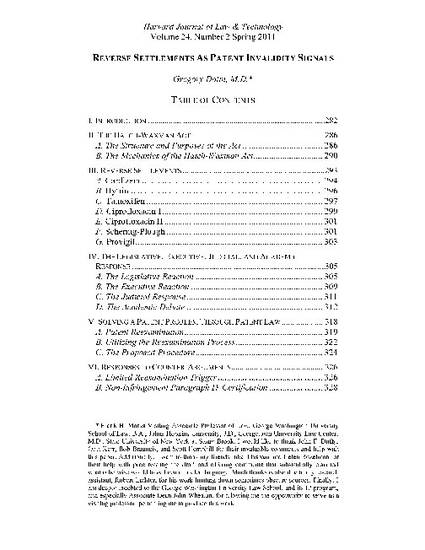
Over the last decade a new type of settlements, commonly referred to as “reversed payment settlements” or simply “reverse settlements,” emerged in litigation over patents covering pharmaceutical products. What differentiates these new settlements from their traditional counterparts is that whereas traditionally, the alleged trespasser on someone else's rights pays the rights-holder to settle the litigation, in these new settlements it is the rights holder that pays the alleged trespasser. These settlements are a direct consequence of the various incentives provided by the Hatch-Waxman Act - an Act designed to increase competition between brand name and generic manufactures of pharmaceutical products.
In this Article, I propose a new approach and argue the proper way to police these agreements is not by subjecting them to an antitrust analysis, but by ordering a reexamination of any patent involved in a reverse settlement. The question of whether any reverse settlement is pro- or anti-competitive, turns on the strength of the patent and the likely conclusion of the litigation. The antitrust analysis is simply not designed to address the patent scope and validity issues, and therefore cannot properly differentiate between pro- and anti-competitive settlements.
The patent law, on the other hand, is designed to evaluate the strength of the patent, and is therefore an obvious candidate to police reverse settlements. By employing the Patent Office's existing (but broadened) reexamination authority, weak patents can be invalidated and removed from the marketplace, thus opening up the market for new generic entrants. Additionally, if patentees know that their patents may be subject to reexamination, they will be less likely to enter into anti-competitive settlements. By expanding the scope of Patent Office's reexamination authority, and by assigning the task of evaluating the ultimate validity of questionable patents to the agency with expertise in patent law, the ability of parties to enter into beneficial and legitimate settlements, as well as consumer access to lower cost drugs and medical devices will both be preserved.
